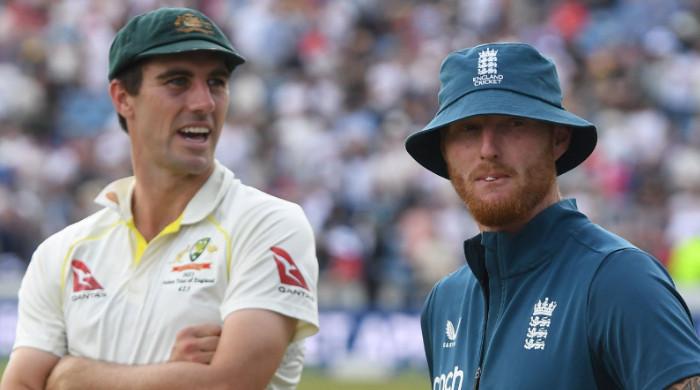ECB’s Thompson Acknowledges Pressure on Bilateral Cricket Due to Packed T20 Calendar
The England and Wales Cricket Board (ECB) has expressed notable apprehension regarding the proposed two-tier structure for the World Test Championship (WTC). They are concerned that the relegation aspect could negatively impact England’s ability to consistently compete against major rivals such as Australia and India, which are crucial for commercial success.
The International Cricket Council (ICC) has recently formed a dedicated working group, headed by former New Zealand batter Roger Twose, to examine potential improvements to the WTC ahead of the next cycle, which is scheduled to begin in July 2027.
One of the primary proposals deliberated during the ICC Annual Conference held in July was the introduction of a two-division system. Twose, who also represents New Zealand Cricket on the ICC Board, is expected to provide recommendations soon.
Discussions surrounding a two-tier Test framework have been ongoing for more than 15 years, with the ICC initially showing interest back in 2009. However, Full Member nations remain split on the issue, largely because of financial considerations and national pride.
During a broadcast on BBC’s Test Match Special during the recent England-India Test at The Oval, ECB chairman Richard Thompson commented on the increasing strain on bilateral cricket due to a busy global schedule heavily influenced by T20 leagues.
He acknowledged that the ICC’s concept for a two-tier Test system is being considered but questioned its practicality.
“There are numerous options that we need to assess, and tiers would be one of those,” Thompson stated.
“As England, we wouldn’t want to risk a period of underperformance that could lead to us falling into Division Two, preventing us from playing Australia and India. That is simply not viable. Common sense must prevail here,” he elaborated.
Thompson suggested refining the existing WTC structure as a more viable alternative.
He cited South Africa’s unexpected victory over Australia in the current WTC cycle, emphasizing that smaller teams can prosper within the existing system with sufficient backing.
“The World Test Championship has the potential to be even more effective than it is currently. It has undeniably enhanced the narrative and provided a sense of importance,” Thompson noted.
“Witnessing South Africa’s victory and seeing the emotional response from players like Graeme Smith, who I know very well, highlighted the significance, especially considering rugby’s dominance in their country. It was a genuine moment. Despite my criticism of their ‘B’ team selection against New Zealand [in 2024], it was beneficial for the sport to see an underdog win.
“But the reality is that with some improvements and modifications, the World Test Championship might eliminate the need for two tiers of Test cricket. What is crucial is a more logical schedule that addresses the quantity of bilateral cricket, both white-ball and red-ball, while also considering the 2028 Olympics.
He also emphasized the need for a more structured international calendar, particularly with the upcoming 2028 Olympics.
“What will happen in 2028 when our top 11 cricketers are required to be in Los Angeles for two weeks in July for the Olympics? This will certainly create some challenges.”
While the exact makeup of the ICC’s working group remains undisclosed, reports indicate an eight-member panel, including representatives from non-Test nations. ICC CEO Sanjog Gupta is also expected to participate.
Definitive clarity on the future WTC format is essential, as bilateral series scheduling for the 2027–29 cycle is already in progress.
The ICC is also in the process of tendering its media rights for the 2027–31 cycle and aims to enhance the WTC’s commercial appeal. However, many Full Members remain reluctant to embrace a two-tier framework.
Previous resistance has been driven by worries about decreased ICC revenue distribution, the potential negative image of relegation, and national pride. These factors have repeatedly stalled progress on the proposal.
Cricket Australia CEO Todd Greenberg stressed the obligation of leading cricket nations to assist emerging Test teams by sharing resources and strengthening their systems.
“The real question is what role do we each play,” Greenberg said .
“When I say we, I am referring to the three countries investing significant resources and energy into Test cricket. What responsibility do we have to help others improve, given that a strong West Indies, Pakistan, New Zealand, and South Africa are in our best interests? We want those nations to be strong in this format, but they will undoubtedly require assistance. It is the collective responsibility of cricket to provide that help,” he added.
Greenberg expressed an open-minded approach regarding the two-tier concept, conditioned on it creating greater opportunities for smaller nations.
“My openness stems from the belief that if it enhances opportunities for those other countries to strengthen and have better resources in Test match cricket, then I am in favor,” he stated. “However, if it fails to achieve that and instead has the opposite effect, I would not support it.”
He noted that other cricket CEOs at the recent ICC Chief Executives’ Committee meeting in Singapore shared similar views.
“In discussions with CEOs from the West Indies and other boards recently, there was a general openness to this, as they recognize the need for some level of change to unlock value in this format of the game.”



Comments (0)
No comments yet. Be the first to comment!
Leave a Comment